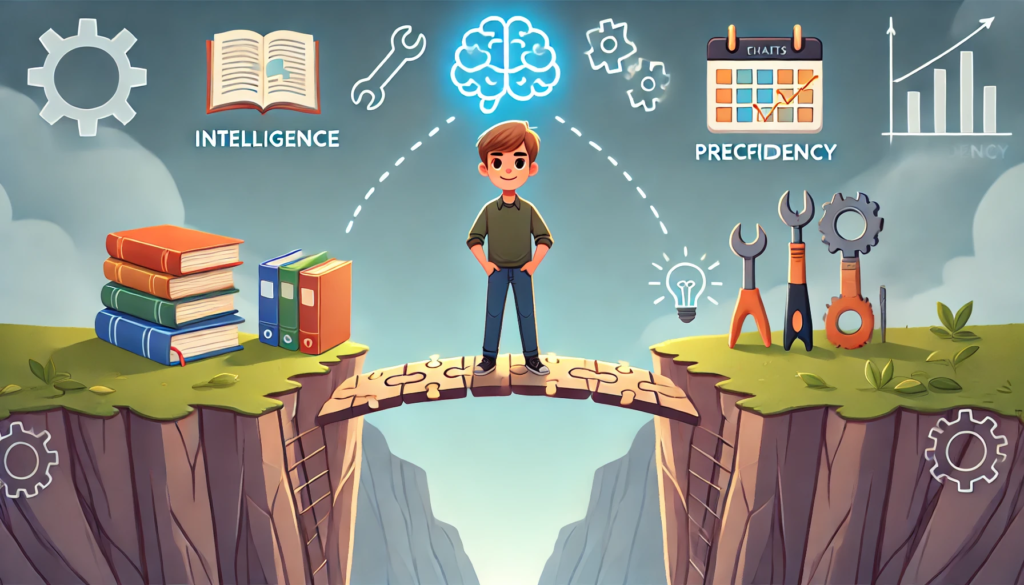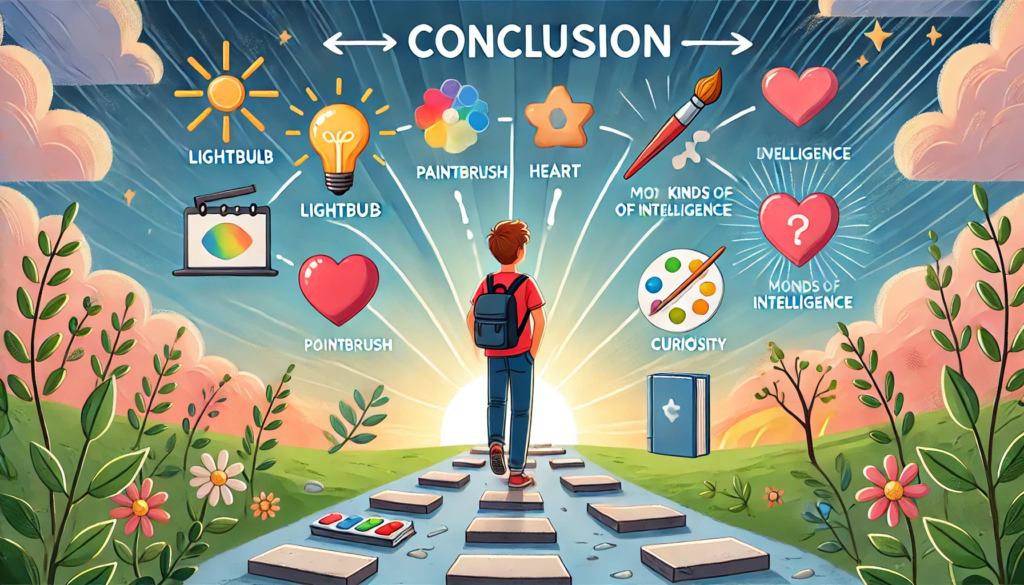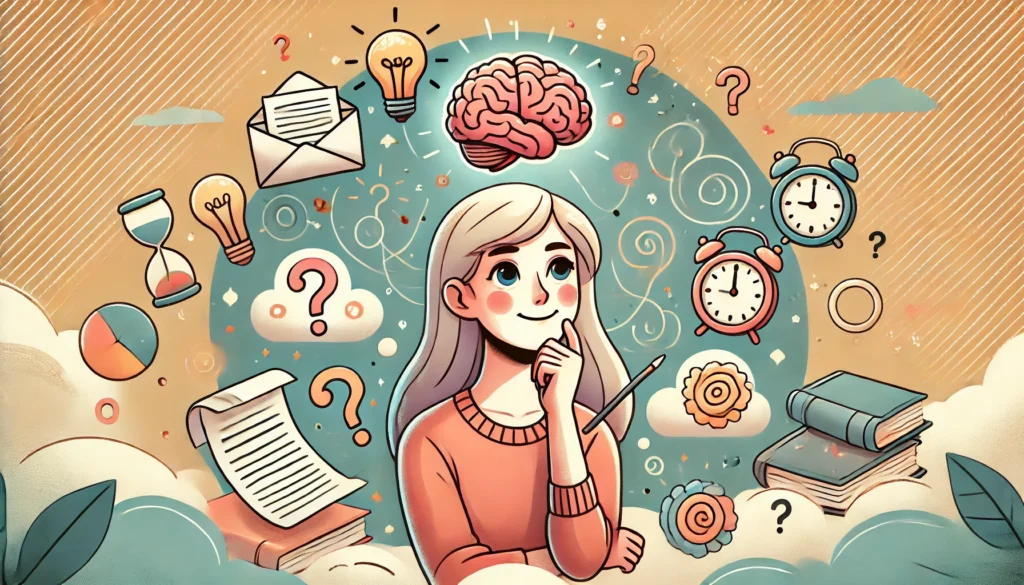Many find a paradox unsettling: Why do some of the most intelligent people struggle to meet the lofty expectations set for them? Recall a moment when you felt the weight of expectations pressing down, your mind swirling with doubts despite knowing, somewhere deep down, your capabilities. This emotional dissonance is at the heart of our exploration today—a journey into the realms where high intelligence and underachievement meet.
In our world, intelligence is often associated with straightforward proficiency, but the stories we hear in private usually reveal a different picture. Our purpose today is to unravel why this paradox continues and how understanding it can redefine our perceptions of success and achievement.
Let’s delve into those universal feelings of doubt and explore how they shape the lives of those who are frequently seen as gifted but often misunderstood.
Introduction
Let’s discuss intelligence and proficiency. They are different, but both are important. Intelligence is about how we think and solve problems, while proficiency is about how well we can do something.
Understanding these differences helps us in school and life. It shows us where we are strong and where we can grow.
In this post, we will explore what each term means and why knowing the difference matters. Let’s get started!
Understanding Intelligence

What is intelligence?
Intelligence is the ability to learn and solve problems. It helps us understand the world. Different people can be innovative in various ways.
Types of Intelligence
- IQ (Intelligence Quotient):
- IQ is a number. It shows how well you understand and solve problems.
- Tests measure this by asking tricky questions.
- Emotional Intelligence:
- Emotional intelligence helps us understand our feelings.
- It also helps us feel what others feel, making us better friends.
Measuring Intelligence
- IQ Tests:
- These are tests with math, puzzles, and patterns.
- They give a score to show how smart you are in certain areas.
- Emotional Intelligence Tests:
- These look at how you handle emotions and relate to others.
Intelligence vs. Other Skills
- Skills: Skills are what you learn to do, like playing an instrument or riding a bike.
- Qualities: These are things like being kind or curious. They are how you act or think.
Both skills and qualities are essential. They help you do well in life, just like intelligence does.
Remember, everyone is unique and innovative in their own way!
The Myth of Overrated Proficiency

Many people think that intelligent individuals are perfect. They see someone competent and assume they can do everything well. Let’s explore why this idea is only partly true.
How People See Smart Individuals
Society often looks up to smart people. This means others believe they can solve any problem. They are thought to always know the correct answers. But even the most intelligent people make mistakes.
Here are some common beliefs:
- Smart people know everything.
- They never need help.
- They are always successful.
These beliefs create pressure. Intelligent people might feel anxious about making mistakes because of these high expectations.
Common Stereotypes
Stereotypes are ideas about groups that might not be true.
Do all smart people:
- Wear glasses?
- Love reading?
- Act like geniuses?
The truth is that everyone is different. Smart people can enjoy many different things, and they have unique hobbies and personalities.
Intelligence and Proficiency
Some think intelligence means you can do anything well. This is not true. You might be good at math but not art, or vice versa. Everyone has strengths and weaknesses. It’s essential to understand this:
- Intelligence is more than knowing facts.
- Skills can be learned with practice.
- No one is perfect at everything.
In conclusion, being smart doesn’t mean you succeed in everything. Smart people can still struggle and make mistakes.
Factors Influencing Proficiency

Proficiency means being really good at something. Let’s look at what helps you get better at different skills.
Emotional and Social Intelligence
Emotional intelligence is understanding your own feelings and others’ feelings. Social intelligence is knowing how to get along with others.
- Why They Matter:
- It helps you know when someone is sad or happy.
- Make it easier to work well in a group.
Practical Experience and Hands-On Skills
Learning by doing means practicing skills in real life. This helps you remember and understand better.
- Ways to Get Practical Experience:
- Try science experiments in your class.
- Cook a simple recipe at home.
Communication and Interpersonal Skills
Communication means talking and listening well. Interpersonal skills mean getting along with people.
- Why They Are Important:
- Help you share ideas clearly.
- It makes you a good teammate.
Potential Challenges for Highly Intelligent People

Some smart people face significant challenges. Let’s explore them.
- Overthinking and Analysis Paralysis
Super-smart people often think a lot. They look at a problem from every angle, which can make it hard to make decisions. They can feel stuck because they keep thinking of new problems. - Struggles with Social Interactions or Teamwork
Sometimes, intelligent people find it hard to talk with others. They might not know how to work well in a group, and their thoughts can seem different from others’, making them feel alone. - Pressure of High Expectations and Fear of Failure
Smart people often face pressure to succeed. Others expect great things from them. This can make them scared to fail. They might worry they won’t meet these big expectations.
Every person faces challenges. Understanding these can help us understand and support each other better.
Case Studies and Examples

Examples of Smart People
- Albert Einstein
- Albert was a famous scientist.
- He created the theory of relativity.
- People thought he was a genius.
- Marie Curie
- Marie discovered radium.
- She won two critical prizes.
- Her research helped fight cancer.
- Ada Lovelace
- Ada worked with early computers.
- She wrote the first computer program.
- Her ideas were ahead of her time.
When Being Smart Was Not Enough
- Nikola Tesla
- Tesla was very creative.
- He made great inventions.
- But, he had money problems.
- Vincent van Gogh
- Vincent was a talented artist.
- He painted terrific pictures.
- He did not sell many paintings.
- Edgar Allan Poe
- Edgar wrote famous stories.
- People liked his spooky tales.
- He faced lots of life challenges.
What We Learn
- Being innovative can help solve problems.
- Success needs more than just brains.
- Hard work, good choices, and help from others matter, too.
These examples show that anyone can learn and succeed with effort and teamwork.
Balancing Intelligence and Proficiency

Strategies to Enhance Skills
- Practice Regularly:
- Practicing skills makes them better.
- Try to spend a little time daily on something you want to improve.
- Set Small Goals:
- Break big tasks into smaller ones.
- Achieving small goals can make learning easier.
- Learn from Mistakes:
- Everyone makes mistakes.
- Use mistakes to learn and do better next time.
Keep Learning and Adapt
- Stay Curious:
- Ask questions and find answers.
- Curiosity leads to learning new things.
- Read and Explore:
- Books, articles, and videos can teach a lot.
- Discover new hobbies or topics.
- Be Open to Change:
- Don’t be afraid to try new ways.
- Being able to change helps you grow.
Build Soft Skills
- Work with Others:
- Teamwork is important.
- Communicate clearly and listen to others.
- Solve Problems:
- Think of different ways to solve a problem.
- Practice being creative.
- Manage Time:
- Make a plan for your tasks.
- Use your time wisely to get things done.
These tips help you balance learning with skill. Keep practicing to grow and succeed!
Conclusion

We discussed many important ideas. We learned that being smart is more than knowing facts. It involves creativity, problem-solving, and understanding others.
A holistic approach encompasses a comprehensive perspective. It includes different skills, such as music, art, and speaking with others, which helps us better understand the world.
I want you to think about how we see intelligence. It is not just about getting good grades. It is about learning in many ways and growing as a person. Let’s be open to learning in new and exciting ways.
Further Reading and Resources
Here are some books to read about intelligence and learning:
- “The Smartest Kids in the World” by Amanda Ripley
- This book talks about how kids learn in different countries.
- “Mindset: The New Psychology of Success” by Carol S. Dweck
- This book shows how having a growth mindset helps you improve.
Articles to Read
- “How the Brain Learns” by David Sousa
- This article explains how our brains work when we learn new things.
- “How to Raise a Brilliant Child” by The New York Times
- This article gives tips about helping kids become smarter.
Watch These Talks or Videos
- TED Talk: “The Power of Believing You Can Improve” by Carol S. Dweck
- This video talks about how believing in yourself makes you smarter.
- YouTube Video: “How We Learn: The Science Inside Our Brains”
- This video explains how we learn from a scientific perspective.
These resources will help you understand more about learning and intelligence. Happy exploring!
Call to Action
Have you ever thought about what makes someone smart? Is it just about getting good grades or knowing a lot of things? Everyone is smart in different ways.
Think about what you are good at. Maybe you solve math problems quickly. Or, perhaps you draw beautiful pictures. These are all different types of intelligence.
Let’s Reflect
- What do you think makes you bright?
- Can you remember a time when you learned something new? How did it make you feel?
Share Your Thoughts
I want to hear from you. Leave a comment below. What do you think about intelligence? Do you have tips for getting better at things you find tricky?
Talking about these things helps us learn from each other. Join the discussion, and let’s explore together!

